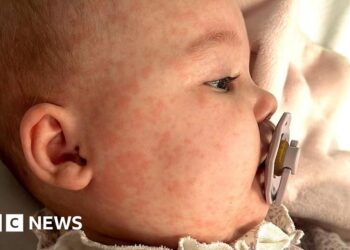TOPLINE:
A systematic review of 483 studies has found people who score better on a group of seven cardiovascular health metrics (Life’s Simple 7) from the American Heart Association are at reduced risk not only for cardiovascular disease but also for dementia, cancer, and premature death.
METHODOLOGY:
- Researchers systematically searched the PubMed, Web of Science, and Scopus databases for publications examining Life’s Simple 7 or at least three cardiovascular health metrics from January 1, 2010, to January 1, 2021. These seven metrics include the following: a healthy diet, physical activity, smoking status, BMI, blood pressure, total cholesterol, and fasting plasma glucose.
- The analysis included 483 publications from 4624 screened articles, with most studies showing low risk for bias when assessed using the Mixed Methods Appraisal Tool.
- Investigators evaluated studies of outcomes (n = 259), prevalence (n = 84), determinants (n = 99), interventions (n = 18), and mechanisms (n = 28) through which cardiovascular health affects health outcomes.
TAKEAWAY:
- Worldwide prevalence of optimal cardiovascular health remains exceedingly low, ranging from 0% to 4% for all seven metrics at ideal levels, with higher prevalence noted in youth aged 12-17 years.
- Longitudinal studies found cardiovascular health scores decline with age, with disparities persisting among underrepresented individuals and those with greater exposure to adverse social determinants.
- The researchers found improvements in cardiovascular health metrics reduced cardiovascular disease risks more than 20%, while maintenance of at least three cardiovascular health behaviors at ideal levels was associated with a lower risk for coronary events.
- Among US adults, improvements from poor cardiovascular health to moderate or ideal levels were linked to a 33% lower risk for cardiovascular disease and a 20% lower risk for all-cause mortality.
- The benefits of ideal cardiovascular health are partially attributable to reduced inflammation; additional pathways remain undefined.
IN PRACTICE:
“Higher levels of CVH [cardiovascular health] powerfully predict low risk for [cardiovascular disease] and other chronic diseases and indicate holistic benefits to individuals and populations. It is possible, and urgent, to promote improvements in CVH and prevent loss of CVH at all ages, starting early in childhood,” the researchers of the study wrote.
“Even among individuals with high genetic risk for coronary heart disease, maintenance of at least three CVH behaviors at ideal levels is associated with substantially lower risk of coronary events and longer [cardiovascular disease]-free survival,” they added.
“The findings in this review study indicate that these healthy lifestyle metrics are also a path to improving health and well-being across the board, from head to toe,” said Stacey E. Rosen, MD, volunteer president of the American Heart Association and senior vice president of women’s health and executive director of the Katz Institute for Women’s Health of Northwell Health in New Hyde Park, New York, in a press release. “Preventing cardiovascular disease and reducing cardiovascular disease risk, the centerpieces for Life’s Essential 8, are the core of the American Heart Association’s mission to be a relentless force for a world of longer, healthier lives.”
SOURCE:
The study was led by Liliana Aguayo, MPH, PhD, of the Nell Hodgson Woodruff School of Nursing at Emory University, in Atlanta. It was published online on July 16 in the Journal of the American Heart Association.
LIMITATIONS:
Publication bias and overrepresentation of studies reporting significant associations cannot be excluded from this systematic review. The researchers noted that knowledge gaps exist regarding cardiovascular health among children and diverse populations, as well as the benefits of modest improvements in cardiovascular health metrics.
DISCLOSURES:
Aguayo was supported by the American Heart Association, the National Institute of Diabetes and Digestive and Kidney Diseases of the National Institutes of Health and is currently supported by the American Heart Association and the National Institute of Environmental Health Sciences of the National Institutes of Health. Additional disclosures are noted in the original article.
This article was created using several editorial tools, including AI, as part of the process. Human editors reviewed this content before publication.
Source link : https://www.medscape.com/viewarticle/decade-long-review-shows-ahas-seven-metrics-predict-2025a1000isb?src=rss
Author :
Publish date : 2025-07-16 13:10:00
Copyright for syndicated content belongs to the linked Source.













